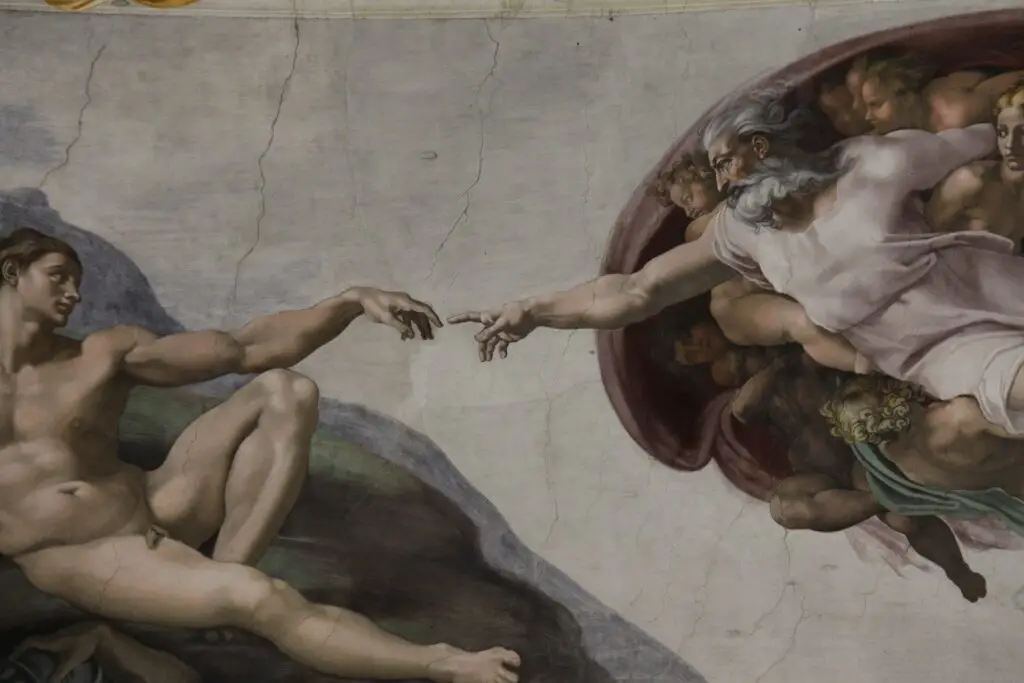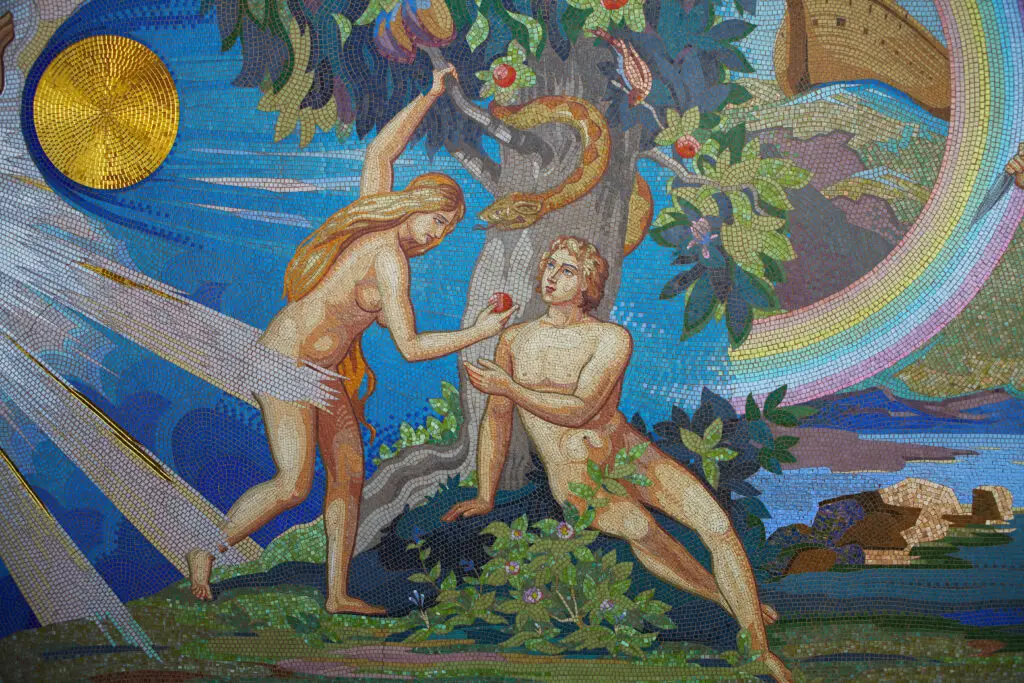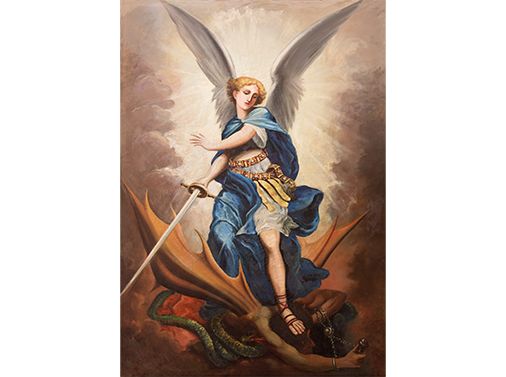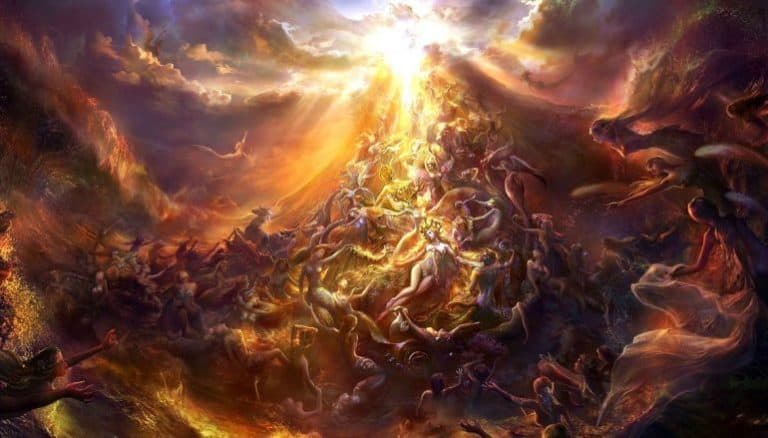God and Evil (What is the purpose of Evil?)
An often-asked question: If God exists, then why is there evil in the world? Evil is the absence of good, and for good to be absent, the individual chooses freely a course of action that leads to evil. God’s gift to each human being, is to choose Him freely called free will.
Evil is the absence of some good, however, God is not the cause of evil, evil is the penalty. God is good and therefore is the supreme good, there is no supreme evil, since God is the cause of every being, therefore it follows that every being has good. There is no such thing as a pure evil. Evil exists in nature due to the choice(s) that humans have sought.
Why does evil exist if God is good?
There is no contradiction between the existence of God and the existence of Evil. We learn from Genesis 1 and 2 that God created all things as good and He was pleased with His creation.
“And out of the ground the LORD God made to grow every tree that is pleasant to the sight and good for food, the tree of life also in the midst of the garden, and the tree of the knowledge of good and evil.” (Genesis 2: 9)
However, the man and woman that God created in His likeness and image, where created not evil but filled with God’s grace and goodness. This was the same for all of creation, for God does not create evil. However, as with the Fallen Angels where themselves created good, their choice based on the free will God granted to His Angels and mankind, elected to rebel against God and through pride fell out of favor with God. This is a similar occurrence with Adam and Eve, since they chose to disobey God and out of pride, their choice brought corruption upon themselves, creation and all generations (Genesis 3). God therefore is the author of the penalty associated with such a choice. Let as turn to the Angelic Doctor for an explanation:

“the evil which consists in the defect of action is always caused by the defect of the agent. But in God there is no defect, but the highest perfection, as was shown above. Hence, the evil which consists in defect of action, or which is caused by defect of the agent, is not reduced to God as to its cause.
But the evil which consists in the corruption of some things is reduced to God as the cause. And this appears as regards both natural things and voluntary things.
For … the order of the universe requires, …., that there should be some things that can, and do sometimes, fail. And thus God, by causing in things the good of the order of the universe, consequently and as it were by accident, causes the corruptions of things.…
The order of justice belongs to the order of the universe; and this requires that penalty should be dealt out to sinners. And so God is the author of the evil which is penalty, but not of the evil which is fault.”
(Thomas Aquinas, A Summa of the Summa: The Essential Philosophical Passages of St. Thomas Aquinas’ Summa Theologica, ed. Peter Kreeft (San Francisco: Ignatius Press, 1990), 215–216.)
God is the author of the evil associated with the penalty and not the fault, God can only create good and every creation has good, there is no such thing as pure evil, although sometimes it might appear this way.
St Thomas Aquinas continues:
“… although evil always lessens good, yet it never wholly consumes it; and thus, while good ever remains, nothing can be wholly and perfectly bad.” As we mentioned above evil is the absence of a good, which is natural and due to a thing (St Thomas Aquinas). Even God Himself distinguishes between the tree of knowledge of good and the tree of knowledge of evil. Evil is the consequences of immoral choices.
What is the purpose of evil?
God has a good reason for the existence of evil. We have all heard the saying that God can bring good out of evil. This shows that God does not create evil, but authors the evil as a consequence, either through His direct or indirect Will.
Sadly, Evil is a moral defect! It can be equated to a deaf person, where the condition is real and an unfortunate defect of the hearing ability of the person. Evil is real, like deafness is real, however, both are not created by God.
What are the types of Evil?
There are generally two main types of Evil – Moral Evil and Physical Evil. The Catechism of the Catholic Church makes this distinction:
“Angels and men, as intelligent and free creatures, have to journey toward their ultimate destinies by their free choice and preferential love.
They can therefore go astray. Indeed, they have sinned. Thus has moral evil, incommensurably more harmful than physical evil, entered the world. God is in no way, directly or indirectly, the cause of moral evil. He permits it, however, because he respects the freedom of his creatures and, mysteriously, knows how to derive good from it:
For almighty God …, because he is supremely good, would never allow any evil whatsoever to exist in his works if he were not so all-powerful and good as to cause good to emerge from evil itself.” (CCC 311).
The Church teaches, as in several Biblical quotes, that moral evil harms the persons’ soul and hence the eternal destination of the soul. The physical Evil only harms the body, and in many cases, can help purify the soul. Further, God can turn good from Evil!
Moral Evil, therefore, comes from the moral choices that we make.
According to Peter Kreeft:
“Man is not evil by his nature, which God created, but by his own free choice.
Human nature is the best of all God’s creations, for it is made in his image. The worth of a single human being is more than that of all the galaxies. That worth can be gauged by the price God deemed it worth paying to redeem him: his own infinitely beloved Son’s life.
Both the cause of evil (man’s misuse of his free will) and the cure of evil (the death of Christ on the Cross) are deep mysteries, not simple problems.
They are not wholly transparent to human reason.”
The Catechism states:
“If God the Father almighty, the Creator of the ordered and good world, cares for all his creatures, why does evil exist? To this question, as pressing as it is unavoidable and as painful as it is mysterious, no quick answer will suffice.
Only Christian faith as a whole constitutes the answer to this question: the goodness of creation, the drama of sin, and the patient love of God who comes to meet man by his covenants, the redemptive Incarnation of his Son, his gift of the Spirit, his gathering of the Church, the power of the sacraments, and his call to a blessed life to which free creatures are invited to consent in advance, but from which, by a terrible mystery, they can also turn away in advance. There is not a single aspect of the Christian message that is not in part an answer to the question of evil.” (CCC 309)
Can God do evil?
God is not capable of Evil, however out of His love for Creation, He respects our freedom to choose. Even when we choose a moral evil and its’ subsequent consequence, God Wills to draw good out of it. This basic understanding is sensible to the Christian for only a Christian understanding of the redemption, can provide an adequate explanation to the existence of Evil. It is a mystery with no single answer to suffice.
In understanding Moral evil we can conclude:
- its origin is man’s free will, and
- its providential purpose is
- the good of preserving our free will and
- the good of Christ’s redemption from it.
God permits Evil because He respects our freedom to choose and still, derives good from Evil.(Summarised from Peter Kreeft, Catholic Christianity: A Complete Catechism of Catholic Beliefs Based on the Catechism of the Catholic Church (San Francisco: Ignatius Press, 2001), 52–54.)
What does the Bible say about God and Evil?
The following Biblical passages give us a better understanding of God and the existence of Evil.
In Genesis 3: 5 we read that God hands out just punishment upon the Serpent, Adam and Eve. For an infinite disobedience and sin of pride, produces an infinite punishment. However, out of God’s goodness, He will send a Savior, as is His promise in Genesis 3:15.
The full text of Genesis 3 is reproduced below to help better understand the entry of sin, moral choices, and the consequences of evil. This is worthy of reflection and should be read considering the promised redeemer – the Woman and Her Seed.
“NOW the serpent was more subtle than any of the beasts of the earth which the Lord God had made. And he said to the woman: Why hath God commanded you, that you should not eat of every tree of paradise?

And the woman answered him, saying: Of the fruit of the trees that are in paradise we do eat:
But of the fruit of the tree which is in the midst of paradise, God hath commanded us that we should not eat; and that we should not touch it, lest perhaps we die.
And the serpent said to the woman: No, you shall not die the death.
For God doth know that in what day soever you shall eat thereof, your eyes shall be opened: and you shall be as Gods, knowing good and evil.
And the woman saw that the tree was good to eat, and fair to the eyes, and delightful to behold: and she took of the fruit thereof, and did eat, and gave to her husband, who did eat.
And the eyes of them both were opened: and when they perceived themselves to be naked, they sewed together fig leaves, and made themselves aprons.
And when they heard the voice of the Lord God walking in paradise at the afternoon air, Adam and his wife hid themselves from the face of the Lord God, amidst the trees of paradise.
And the Lord God called Adam, and said to him: Where art thou?
And he said: I heard thy voice in paradise; and I was afraid, because I was naked, and I hid myself.
And he said to him: And who hath told thee that thou wast naked, but that thou hast eaten of the tree whereof I commanded thee that thou shouldst not eat?
And Adam said: The woman, whom thou gavest me to be my companion, gave me of the tree, and I did eat. And the Lord God said to the woman: Why hast thou done this? And she answered: The serpent deceived me, and I did eat.
And the Lord God said to the serpent: Because thou hast done this thing, thou art cursed among all cattle, and beasts of the earth: upon thy breast shalt thou go, and earth shalt thou eat all the days of thy life.
I will put enmities between thee and the woman, and thy seed and her seed: she shall crush thy head, and thou shalt lie in wait for her heel.
To the woman also he said: I will multiply thy sorrows, and thy conceptions: in sorrow shalt thou bring forth children, and thou shalt be under thy husband’s power, and he shall have dominion over thee.
And to Adam he said: Because thou hast hearkened to the voice of thy wife, and hast eaten of the tree, whereof I commanded thee, that thou shouldst not eat, cursed is the earth in thy work: with labour and toil shalt thou eat thereof all the days of thy life.
Thorns and thistles shall it bring forth to thee, and thou shalt eat the herbs of the earth.
In the sweat of thy face shalt thou eat bread till thou return to the earth out of which thou wast taken: for dust thou art, and into dust thou shalt return.
And Adam called the name of his wife Eve: because she was the mother of all the living.
And the Lord God made for Adam and his wife garments of skins, and clothed them.
And he said: Behold Adam is become as one of us, knowing good and evil: now therefore lest perhaps he put forth his hand and take also of the tree of life, and eat, and live for ever.
And the Lord God sent him out of the paradise of pleasure, to till the earth from which he was taken.
And he cast out Adam: and placed before the paradise of pleasure Cherubims, and a flaming sword, turning every way, to keep the way of the tree of life.” (Genesis 3: 1-24).
The words from the Book of Wisdom which summarises the purpose and goodness of God’s Creation:
“For he created all things that they might exist, and the creatures of the world are wholesome,
and there is no destructive poison in them; and the dominion of Hades is not on earth.
For righteousness is immortal.
But ungodly men by their words and deeds summoned death; considering him a friend, they pined away, and they made a covenant with him, because they are fit to belong to his party.”
(Wisdom 1: 14-16)
The Psalmist laments the fall of man and the evil that is done.
“The fool says in his heart, “There is no God.” They are corrupt, doing abominable iniquity; there is none that does good. God looks down from heaven upon the sons of men to see if there are any that are wise, that seek after God.
They have all fallen away; they are all alike depraved; there is none that does good, no, not one. Have those who work evil no understanding, who eat up my people as they eat bread,
and do not call upon God?” (Psalm 53: 1-4)
Finally, in Chronicles we read:
“And he did evil, for he did not set his heart to seek the Lord.” (2 Chronicles 12:14).
In conclusion, evil is pursued by mankind and God pursues mankind leading him towards goodness. It is the choice of humans that God respects. The existence of Evil and its workings in the world is a mystery, however the Christian can begin to understand that there is no contradiction between the existence of God and Evil. God’s redemptive actions by sending His only Son, gives insight to a just God that despite humanity turning away from Him as their Creator and God, God did not abandon us, and continues to do so through the One, Holy, Catholic and Apostolic Church – The Roman Catholic Church.
God be with you.





